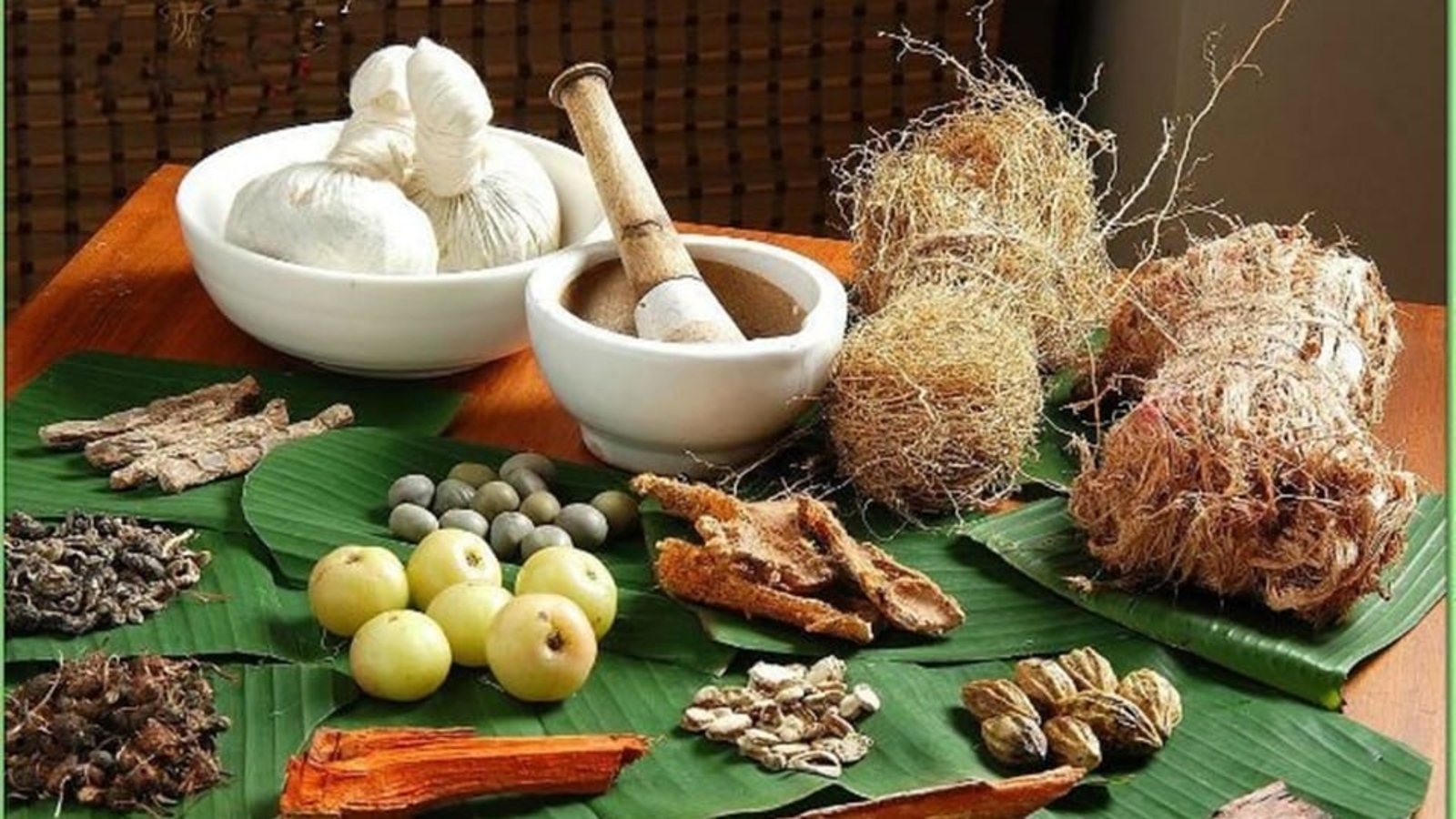- INFERTILITY TREATMENT
- BEST NIL SPERM AYURVEDIC TREATMENT IN INDIA
- MALE SEXUAL DISORDER
- FEMALE SEXUAL DISORDER
- PREMATURE EJACULATION
- ERECTILE DYSFUNCTION
- OLIGOSPERMIA
- NATURAL MENSTRUAL TREATMENT
- NATURAL MIGRAINE AYURVEDIC TREATMENT
- ASTHMA AYURVEDIC TREATMENT
- JOINT PAIN AYURVEDIC TREATMENT
- AYURVEDIC TREATMENT FOR LEUCORRHOEA
- AYURVEDIC TREATMENT FOR PILES
- AYURVEDIC TREATMENT FOR TONSIL PROBLEMS
- KIDNEY STONE AYURVEDIC TREATMENT GUIDE
- Ayurvedic Treatment for Acne – Natural & Lasting Solutions
- Ayurvedic Treatment for Cough
- Ayurvedic Treatment for Gallbladder Stones – Safe & Natural Relief
- Ayurvedic Treatment for Headache – Natural & Holistic Relief
- Ayurvedic Treatment for Sleeplessness – Natural Insomnia Remedies
- Ayurvedic Treatment for Uterus Cyst – Natural & Holistic Healing
- Ayurvedic Treatment for Uterus Swelling – Natural & Holistic Healing
- Ovary Cyst Ayurvedic Treatment
- Uterus Fibroid Ayurvedic Treatment
- Cholesterol Ayurvedic Treatment | American Hospital
- Hair Falling Ayurvedic Treatment
- Sinusitis Ayurvedic Treatment – Natural & Permanent Relief
- Fungal Infection Ayurvedic Treatment
- Urinary Tract Infection (UTI) Ayurvedic Treatment
- Ulcer Ayurvedic Treatment: Natural Healing for Gastric & Peptic Ulcers
- Gastritis Ayurvedic Treatment
- Sex Weakness Ayurvedic Treatment
- Vertigo Ayurvedic Treatment in India
- Epilepsy Ayurvedic Treatment
- Hysteria Ayurvedic Treatment
- Fatty Liver Ayurvedic Treatment
- Liver Enlargement Ayurvedic Treatment
- INFERTILITY TREATMENT
- निल स्पर्म का आयुर्वेदिक चिकित्सा | अमेरिकन हस्पताल अम्बाला छावनी हरियाणा
- पुरुष यौन समस्याओं का आयुर्वेदिक इलाज – अमेरिकन अस्पताल, अम्बाला छावनी
- महिला यौन विकृति आयुर्वेदिक उपचार | अमेरिकन अस्पताल, अम्बाला छावनी
- अमेरिकन अस्पताल, अम्बाला छावनी – शीघ्रपतन का आयुर्वेदिक उपचार
- नपुंसकता (Erectile Dysfunction) का आयुर्वेदिक उपचार
- ओलिगोस्पर्मिया (Oligospermia) का आयुर्वेदिक उपचार

Natural Menstrual Ayurvedic Treatment for Women's Health
Key Takeaways:
- Ayurveda offers a holistic approach to managing menstrual health, addressing the root causes of issues.
- Personalized treatment plans based on individual dosha imbalances can help restore harmony within the body and mind.
- Natural Ayurvedic remedies, including herbs, essential oils, and dietary adjustments, can provide relief for common menstrual discomforts.
- Stress management techniques, such as yoga and meditation, play a crucial role in supporting hormonal balance and overall menstrual well-being.
- Embracing Ayurvedic principles empowers women to take a proactive approach to their feminine health, fostering a deeper understanding and appreciation of their natural cycles.
Understanding Menstrual Health in Ayurveda
In the ancient art of Ayurveda, menstrual health is viewed through a holistic lens, acknowledging the intricate relationship between the body’s doshas (bioforces) and the menstrual cycle. By understanding this dynamic, Ayurvedic practitioners can help women address common menstrual disorders and restore hormonal balance.The Role of Doshas in Menstruation
According to Ayurveda, the three primary doshas – Vata, Pitta, and Kapha – play a crucial role in the menstrual cycle. An imbalance in these doshas can lead to various Ayurvedic gynecological concerns, such as irregular periods, excessive bleeding, or debilitating period pain.- Vata dosha governs movement and circulation, influencing the flow and timing of menstruation.
- Pitta dosha, associated with heat and metabolism, affects the intensity and duration of the flow.
- Kapha dosha, known for its nourishing and lubricating properties, helps maintain uterine health and hormonal balance.
Common Menstrual Disorders in Women
Ayurvedic practitioners often encounter a variety of menstrual disorders, each requiring a tailored approach to treatment. Some of the most common issues include:- Dysmenorrhea (Painful Periods):Characterized by severe cramps and discomfort during menstruation, often linked to Vata and Pitta imbalances.
- Menorrhagia (Heavy Bleeding): Excessive or prolonged menstrual bleeding, typically associated with Pitta or Kapha imbalances.
- Amenorrhea (Absent Periods): The absence of menstruation, which may be caused by Vata or Kapha imbalances.
- Irregular Periods: Inconsistent timing or duration of the menstrual cycle, often rooted in Vata or Pitta imbalances.
Key Principles of Ayurvedic Treatments
Ayurvedic medicine, a time-honored tradition originating in India, offers a holistic approach to women’s health, including the management of menstrual challenges. At the heart of this ancient system lie two fundamental principles: the balance of body and mind, and the importance of lifestyle and diet.The Balance of Body and Mind
Ayurveda recognizes the profound interconnection between the physical and the emotional well-being of an individual. When it comes to menstrual health, this principle is particularly relevant. Ayurvedic practitioners believe that restoring the balance between the three doshas (Vata, Pitta, and Kapha) is crucial for achieving harmonious menstrual cycles and alleviating associated discomforts.Importance of Lifestyle and Diet
Ayurvedic treatments for menstrual health emphasize the role of lifestyle choices and dietary modifications as natural healing agents. By incorporating specific uterine tonics and herbal remedies into one’s daily routine, women can support their body’s innate ability to regulate the menstrual cycle and mitigate issues such as cramps, irregular bleeding, and excessive flow. Ayurvedic principles suggest that a holistic approach, encompassing both the physical and the mental aspects of an individual, is the key to unlocking optimal menstrual health. Through the harmonious integration of these core concepts, women can embark on a transformative journey towards greater natural healing and well-being.Natural Remedies for Menstrual Discomfort
Ayurvedic medicine offers a holistic approach to managing menstrual discomfort, focusing on natural remedies that can alleviate cramps, bloating, and other period-related issues. By harnessing the power of herbs, essential oils, and dietary adjustments, women can find relief and support their overall menstrual health.Herbal Solutions for Cramps and Bloating
Certain herbs have been used in Ayurveda for centuries to address menstrual cramps and bloating. Ginger, for instance, is a natural anti-inflammatory that can help soothe uterine contractions and reduce pain. Turmeric, another potent herb, possesses similar properties and may help regulate menstrual flow. Fennel seed is also known for its ability to alleviate bloating and gas.Essential Oils for Relief
Essential oils can be a valuable addition to an Ayurvedic menstrual cramp management regimen. Applying a few drops of lavender, clary sage, or chamomile oil to the lower abdomen can have a calming and soothing effect. These oils can also be added to a warm bath or diffused in the air to promote relaxation and ease discomfort.Dietary Adjustments for Better Health
- Incorporate more leafy greens, which are rich in vitamins and minerals that support menstrual health.
- Increase your intake of omega-3 fatty acids, found in foods like flaxseeds, walnuts, and fatty fish, to reduce inflammation.
- Limit your consumption of processed foods, sugar, and caffeine, as these can exacerbate menstrual symptoms.
The Impact of Stress on Menstrual Irregularities
In the dynamic world we live in, stress has become an unavoidable part of our daily lives. However, its impact on women’s menstrual health cannot be overlooked. Numerous studies have shown that stress can significantly disrupt the delicate hormonal balance, leading to a range of menstrual irregularities.Ayurvedic Practices for Stress Management
Traditional Ayurvedic medicine offers a holistic approach to managing stress and its effects on the body. Some of the effective Ayurvedic practices include:- Meditation and mindfulness techniques to calm the mind and reduce anxiety
- Herbal remedies such as ashwagandha and brahmi to support the body’s stress response
- Breathing exercises like pranayama to promote relaxation and balance the doshas
Yoga and Meditation for Hormonal Balance
Integrating yoga and meditation into your routine can be a powerful way to address the impact of stress on hormonal balance. These ancient practices help to regulate the endocrine system, reduce cortisol levels, and promote the production of essential hormones for optimal Ayurvedic gynecology and traditional medicine. “Regular yoga and meditation can help restore the body’s natural rhythms and support women’s overall hormonal balance.” By incorporating these Ayurvedic techniques into your lifestyle, you can take a proactive approach to managing stress and its influence on your menstrual health.Nutritional Guidelines for Menstrual Health
Maintaining optimal menstrual health goes beyond just managing the symptoms. A well-balanced, nutrient-rich diet can play a crucial role in supporting feminine health and promoting natural healing. By emphasizing specific antioxidants and vitamins, while being mindful of the foods to avoid during menstruation, women can empower themselves to take a proactive approach to their menstrual wellbeing.Emphasizing Antioxidants and Vitamins
During the menstrual cycle, the body undergoes a delicate hormonal dance that can be supported by a diet rich in antioxidants and essential vitamins. Antioxidants like vitamin C, E, and beta-carotene can help reduce inflammation and oxidative stress, which are common contributors to menstrual discomfort. Similarly, vitamins B6, E, and magnesium can assist in regulating the production and balance of reproductive hormones, promoting a healthier menstrual experience.Foods to Avoid During Menstruation
While it’s important to focus on nourishing the body with nutrient-dense foods, it’s equally crucial to be mindful of the items that can exacerbate menstrual symptoms. Foods high in refined carbohydrates, such as white bread, pastries, and sugary snacks, can lead to blood sugar spikes and contribute to cramps and bloating. Additionally, processed and fatty foods may amplify inflammation, making menstrual discomfort more pronounced. By consciously avoiding these problematic foods during one’s period, women can support their feminine health and foster a more positive menstrual experience. By incorporating these nutritional guidelines into their daily lives, women can take a proactive step towards maintaining their overall feminine health and well-being, harnessing the power of natural healing through herbal remedies and a balanced diet.Herbal Supplements for Menstrual Support
In the realm of Ayurvedic treatments for women’s health, herbal supplements have long been revered for their ability to address various menstrual concerns. These natural remedies, rooted in the ancient principles of Ayurveda, offer a holistic approach to supporting women’s menstrual well-being.Popular Ayurvedic Herbs for Women
Among the Ayurvedic herbs renowned for their benefits in managing menstrual discomfort, several stand out. Ashoka, a tree native to India, is prized for its uterine tonic properties, helping to regulate menstrual cycles and alleviate cramps. Shatavari, a rejuvenating adaptogen, is known to balance hormones and ease symptoms of premenstrual syndrome (PMS). Ginger, a warming herb, can provide relief from menstrual cramps and bloating.How to Incorporate Herbs into Your Routine
- Incorporate herbal teas, such as chamomile or fennel, into your daily routine to support overall menstrual health.
- Explore herbal supplements containing a blend of herbal remedies, tailored to address your specific menstrual concerns.
- Consult with an Ayurvedic practitioner at American Hospital to develop a personalized menstrual ayurvedic treatment plan that incorporates the appropriate herbs for your individual needs.
The Role of Exercise in Menstrual Health
When it comes to managing menstrual discomfort, exercise can play a significant role in providing relief. Engaging in gentle activities and incorporating specific yoga poses can help alleviate period pain and cramps, promoting overall menstrual health through natural means.Gentle Activities to Ease Discomfort
During menstruation, it’s best to avoid high-intensity workouts that can exacerbate cramps and other symptoms. Instead, focus on gentle, low-impact exercises that can help improve circulation and relax the muscles. Some recommended activities include:- Light walking or swimming
- Stretching and light yoga
- Pilates or Tai Chi
- Mild strength training with lighter weights
Yoga Poses Beneficial for Menstruation
Certain yoga poses can be particularly helpful in managing menstrual cramps and discomfort. By targeting the abdominal and pelvic regions, these asanas can provide natural period pain relief and promote menstrual cramp management. Some beneficial yoga poses include:- Child’s Pose (Balasana)
- Seated Forward Fold (Paschimottanasana)
- Butterfly Pose (Baddha Konasana)
- Reclined Bound Angle Pose (Supta Baddha Konasana)
- Legs-Up-the-Wall Pose (Viparita Karani)
Importance of Hydration During Menstruation
Maintaining proper hydration during menstruation is crucial for feminine health and well-being. Adequate fluid intake can help alleviate common menstrual discomforts, such as cramps, bloating, and headaches. By understanding the benefits of hydration and incorporating herbal teas and water-rich foods, women can support their feminine health and overall menstrual health through traditional medicine and herbal remedies.Herbal Teas and Their Benefits
Daily Water Intake Recommendations
- Aim for at least 8 cups (64 ounces) of water per day during your menstrual cycle.
- Increase water intake if you experience heavy bleeding or excessive sweating.
- Incorporate water-rich foods, such as fruits and vegetables, to supplement your daily hydration.
- Avoid dehydrating beverages, like caffeine and alcohol, which can exacerbate menstrual symptoms.
Personalized Treatment Plans in American Hospital
In the realm of Ayurvedic gynecology, the key to unlocking optimal menstrual ayurvedic treatment and hormonal balance lies in the personalized approach. Ayurvedic practitioners understand that each individual’s body, mind, and lifestyle are unique, requiring a tailored treatment plan to address their specific needs.Consultations with American Hospital
When seeking Ayurvedic solutions for menstrual health, the first step is to consult with a qualified Ayurvedic practitioner at oshogod.com. These professionals are trained to delve deep into your medical history, assess your dosha (constitutional balance), and evaluate the underlying imbalances that may be contributing to your menstrual concerns.- Through detailed questioning and physical examination, the practitioner will gain a comprehensive understanding of your overall well-being.
- They will consider factors such as your diet, sleep patterns, stress levels, and any existing medical conditions to determine the root cause of your menstrual irregularities or discomfort.
Creating an Individualized Approach
Based on the insights gathered during the consultation, the Ayurvedic practitioner will then develop a personalized treatment plan tailored to your unique needs. This may include a combination of:- Herbal remedies to address specific imbalances
- Dietary modifications to support hormonal regulation
- Lifestyle adjustments to promote overall well-being
- Stress-reducing techniques, such as yoga or meditation


Myths and Facts About Menstruation in Ayurveda
Debunking Common Misconceptions
One common myth is that menstruation is inherently unclean or impure. In Ayurveda, the menstrual cycle is viewed as a natural and essential bodily function, not something to be stigmatized. Menstrual blood is considered a manifestation of the body’s ability to cleanse and renew itself. Another misconception is that women should avoid certain activities or foods during their period. While Ayurvedic practitioners may suggest dietary and lifestyle adjustments to alleviate discomfort, the idea of strict restrictions is largely unfounded. The focus is on maintaining balance and supporting the body’s natural rhythms.Understanding Traditional Beliefs
- In Ayurveda, the menstrual cycle is closely tied to the doshas (fundamental energetic principles) of the body. Imbalances in these doshas can contribute to various menstrual disorders.
- Ayurvedic Gynecology emphasizes the importance of promoting overall well-being and restoring harmony between the mind, body, and spirit during menstruation.
- Traditional Ayurvedic practices, such as the use of herbs, essential oils, and specialized dietary recommendations, aim to alleviate menstrual discomfort and support the body’s natural healing processes.
Conclusion: Embracing Natural Menstrual Ayurvedic Treatments
As we’ve explored the profound insights of Ayurveda and its holistic approach to menstrual health, it’s clear that embracing natural remedies can be a transformative journey. By understanding the delicate balance of our doshas and addressing the root causes of menstrual discomforts, we can reclaim our natural vitality and find lasting relief.Your Journey Towards Better Menstrual Health
The path towards better menstrual health begins with a deeper understanding of our individual constitutions and the unique ways our bodies respond to the ebb and flow of our cycles. By incorporating Ayurvedic principles into our daily lives, we can cultivate a profound sense of harmony and empower ourselves to navigate the challenges of menstruation with grace.Encouragement to Seek Holistic Solutions
As you embark on this journey, know that you are not alone. The American Hospital ,+91 94160 15050 is a trusted resource for those seeking Ayurvedic guidance and support. Their team of experienced practitioners is dedicated to helping women like you find natural, personalized solutions that address your specific needs. With their expertise and the wisdom of Ayurveda, you can unlock the path to optimal menstrual health and live a life of balance, vitality, and empowerment.FAQ
Ayurvedic treatment for menstrual health is a holistic approach that focuses on restoring balance in the body and addressing the root causes of menstrual issues. It emphasizes the use of natural remedies, herbs, lifestyle modifications, and dietary adjustments to alleviate symptoms and promote overall feminine well-being.
According to Ayurveda, the three doshas – Vata, Pitta, and Kapha – play a crucial role in menstrual health. An imbalance in these doshas can lead to various menstrual disorders, such as irregular cycles, excessive bleeding, cramps, and PMS. Ayurvedic practitioners work to identify and restore the proper balance of these doshas to address menstrual concerns.
The key principles of Ayurvedic treatments for menstrual health include: 1) Balancing the body and mind through holistic practices 2) Emphasizing the importance of lifestyle and dietary modifications 3) Incorporating natural remedies, herbal supplements, and uterine tonics to support women’s health.
Ayurvedic natural remedies for menstrual discomfort include: – Herbal solutions such as ginger, turmeric, and ashwagandha to alleviate cramps and bloating – Essential oils like lavender and chamomile for pain relief – Dietary adjustments focusing on anti-inflammatory and hormone-balancing foods
Stress plays a significant role in menstrual irregularities. Ayurvedic practices such as yoga, meditation, and breath work can help manage stress and restore hormonal balance. By addressing the mind-body connection, Ayurvedic treatments aim to alleviate the impact of stress on menstrual health.
Ayurvedic nutritional guidelines for menstrual health emphasize the importance of antioxidants, vitamins, and minerals. Incorporating foods rich in these nutrients, such as leafy greens, berries, and

